In the ever-evolving field of healthcare, crafting an impressive Clinical Laboratory Scientist resume is essential for capturing the attention of employers. Our collection of resume examples for Clinical Laboratory Scientist positions showcases the best practices and format styles tailored to highlight your qualifications and experience effectively. Whether you’re a seasoned professional or just starting in the field, these examples will guide you in creating a compelling resume that opens doors to your next exciting opportunity.
Clinical Laboratory Scientist Resume Examples – Free Download
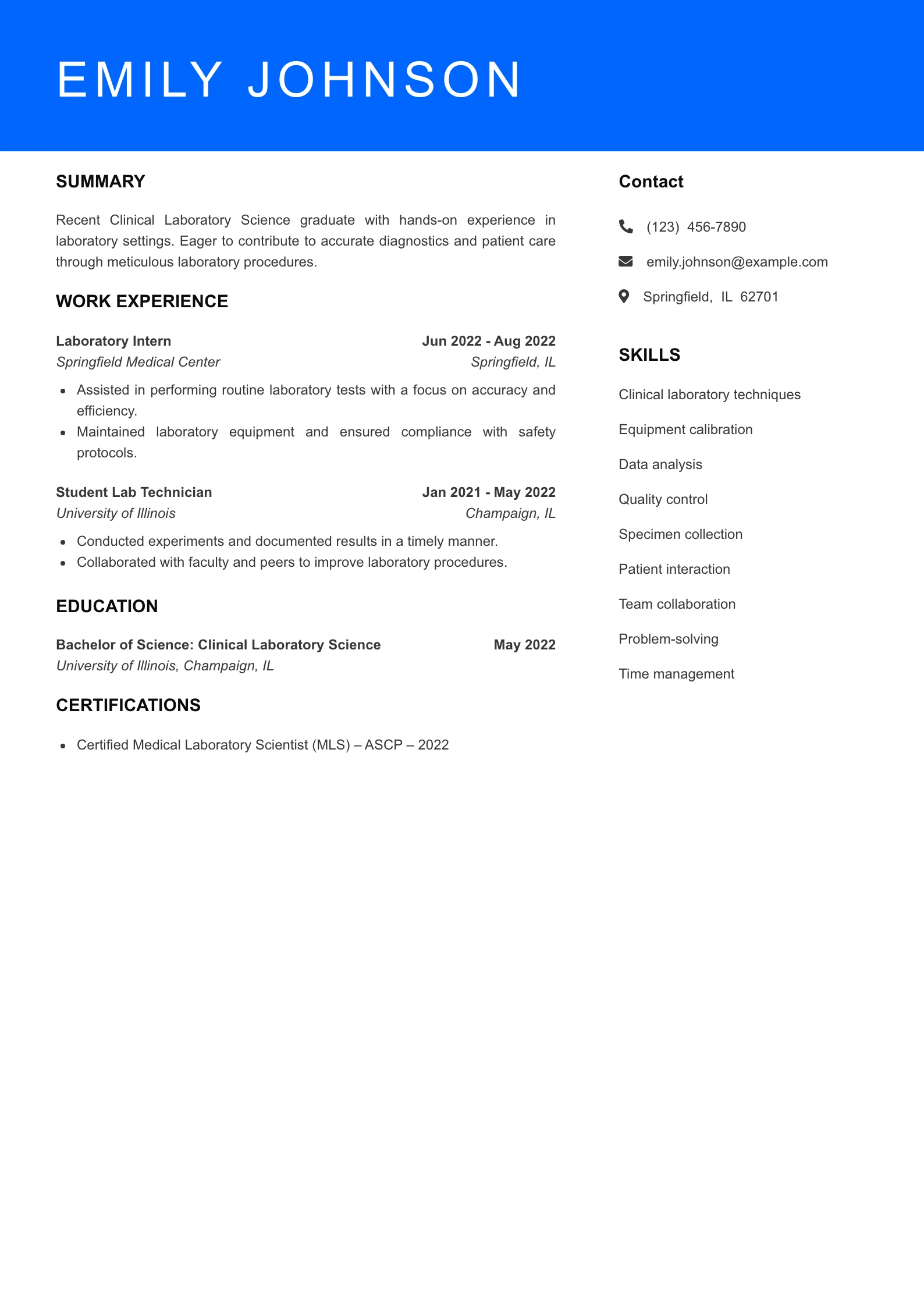

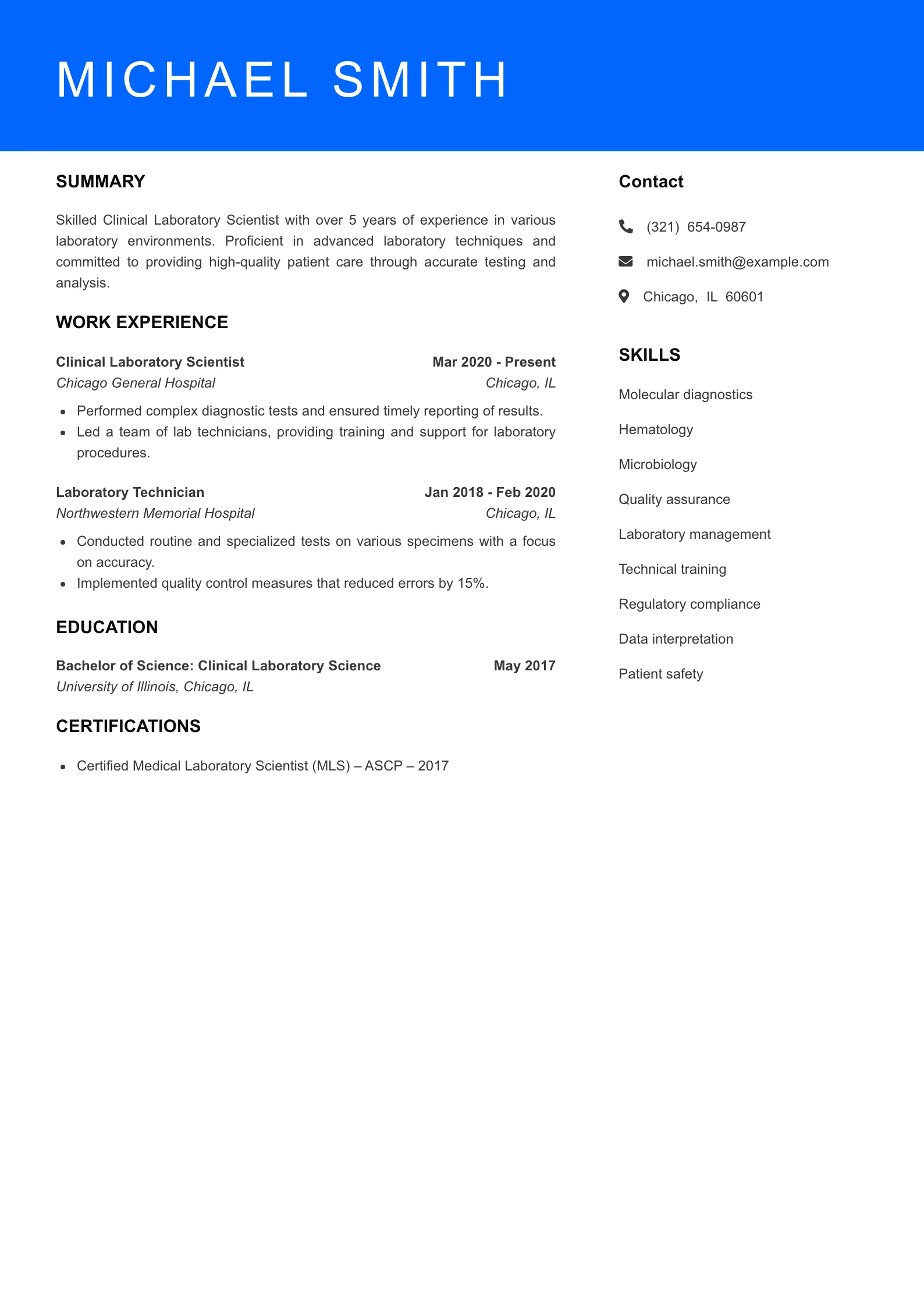
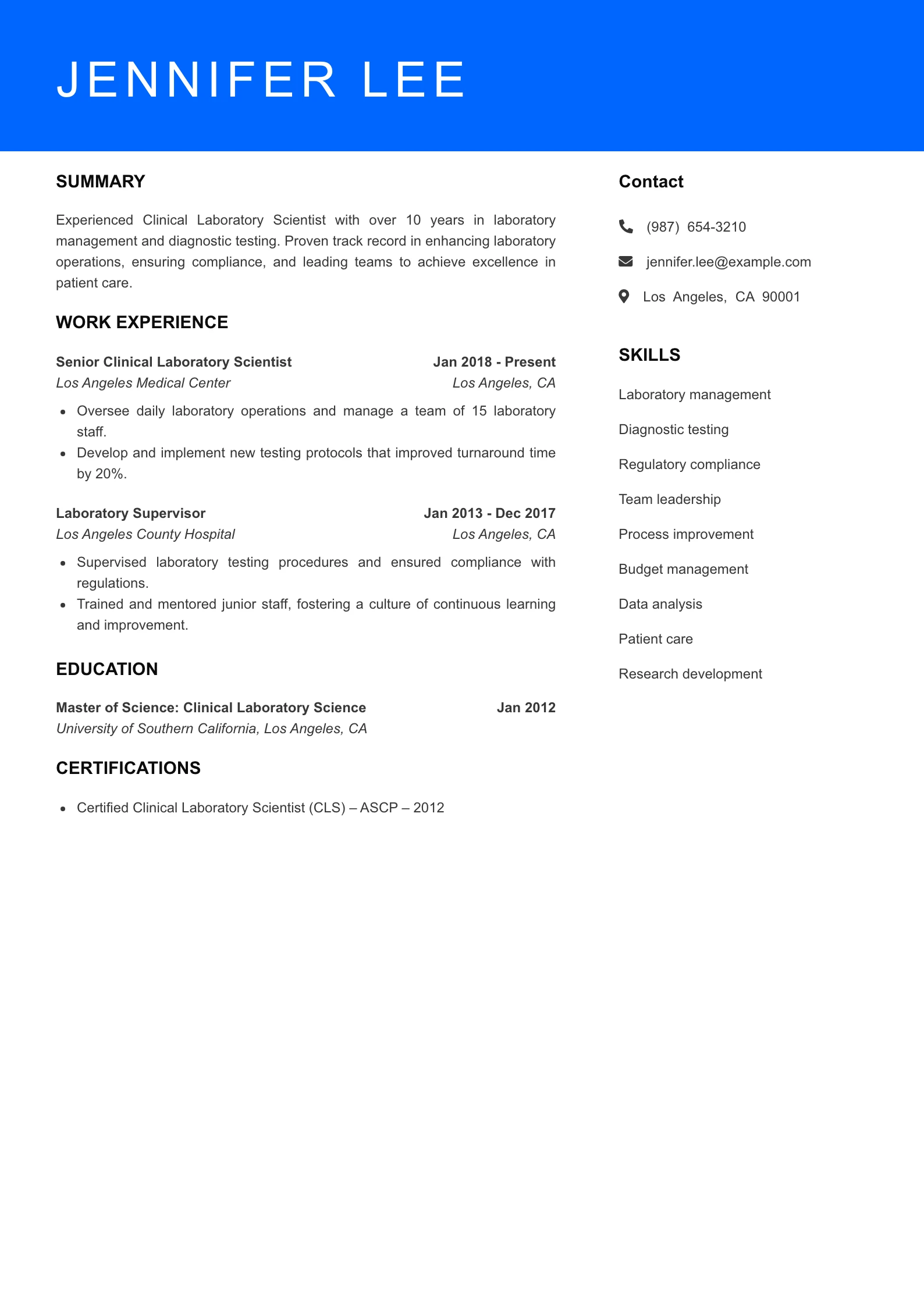
Clinical Laboratory Scientist Resume Examples
Entry Level Clinical Laboratory Scientist Resume Example
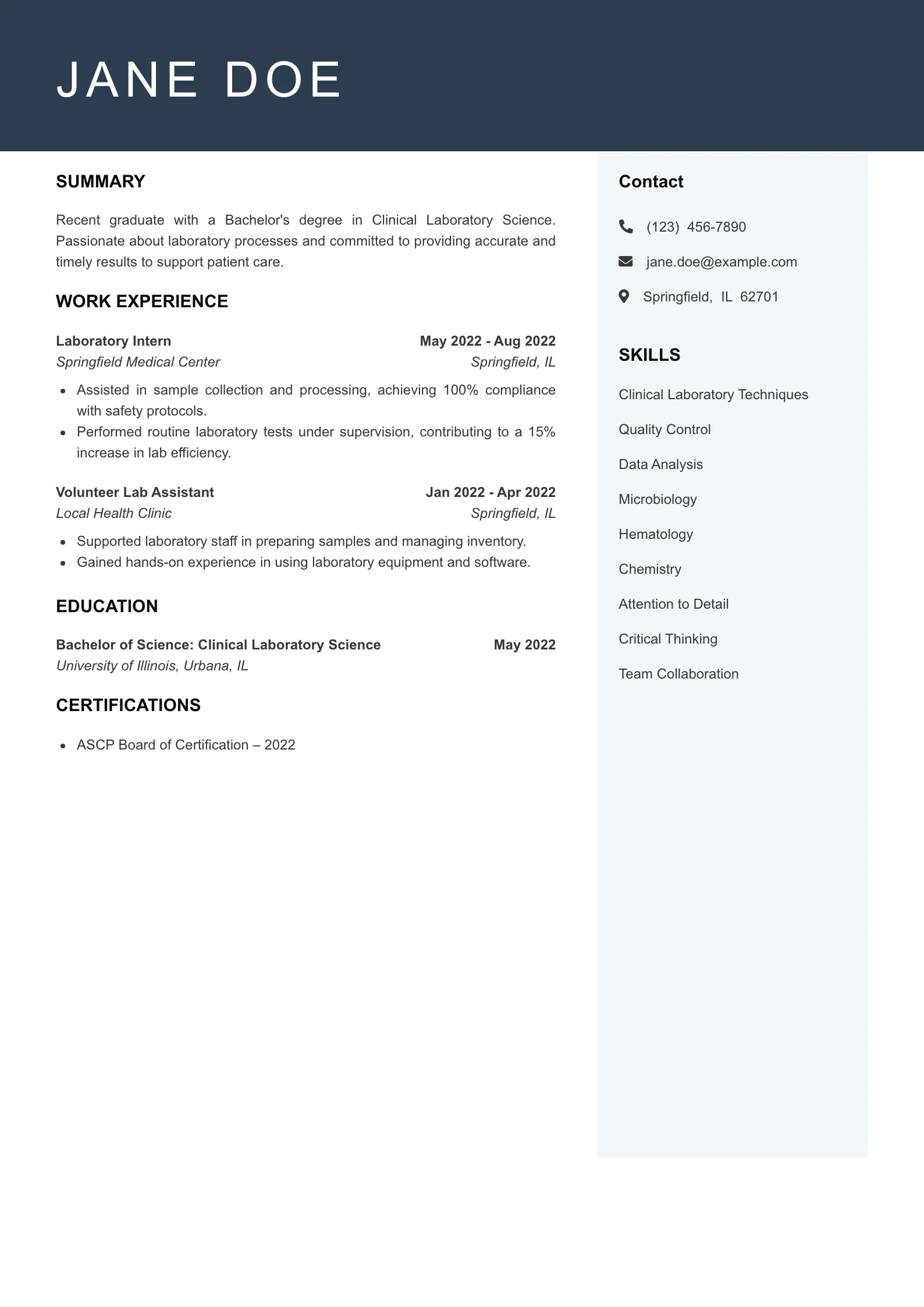
Why This Resume Works
- The summary clearly articulates Jane’s educational background and passion for laboratory processes, setting a focused tone that aligns with entry-level positions in clinical laboratory science.
- The skills section highlights relevant technical and soft skills, demonstrating her preparedness for roles in clinical laboratories and enhancing her appeal to potential employers.
- The work history includes quantifiable achievements, such as a 15% increase in lab efficiency, which showcases her ability to make a positive impact during her internship, making her a more attractive candidate.
- The resume is tailored for an entry-level position, with experiences that reflect her recent graduation and practical exposure in the field, supporting a clear job fit.
- The clarity and tone of the resume are professional and straightforward, effectively communicating her qualifications without unnecessary jargon, making it easy for hiring managers to assess her suitability quickly.
Mid Level Clinical Laboratory Scientist Resume Example
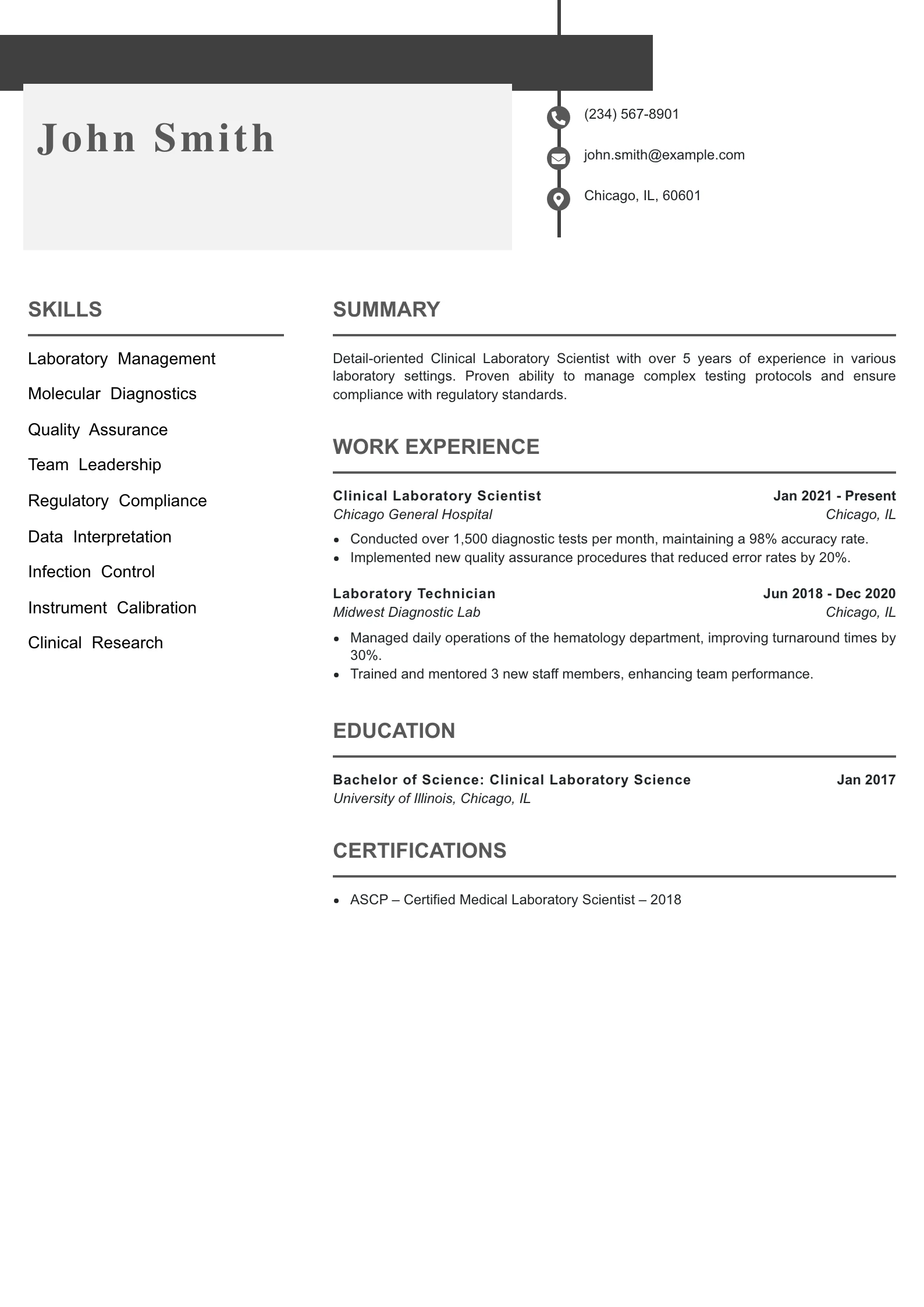
Why This Resume Works
- The summary is clear and concise, effectively highlighting John’s experience and core competencies relevant to clinical laboratory science, which establishes a strong foundation for the resume.
- The skills section includes a comprehensive list of relevant technical and soft skills that align well with the requirements of a clinical laboratory position, demonstrating John’s qualifications for the role.
- The work history features quantifiable achievements that showcase John’s ability to make a tangible impact in his positions, such as improving accuracy rates and reducing error rates, which enhances credibility.
- The resume is well-suited for a mid-level position, as it reflects over 5 years of relevant experience and includes progressive responsibilities, making John a strong candidate for similar roles.
- The tone is professional and focused, utilizing active language that conveys confidence and expertise, which is appealing to hiring managers in the healthcare field.
Senior Level Clinical Laboratory Scientist Resume Example
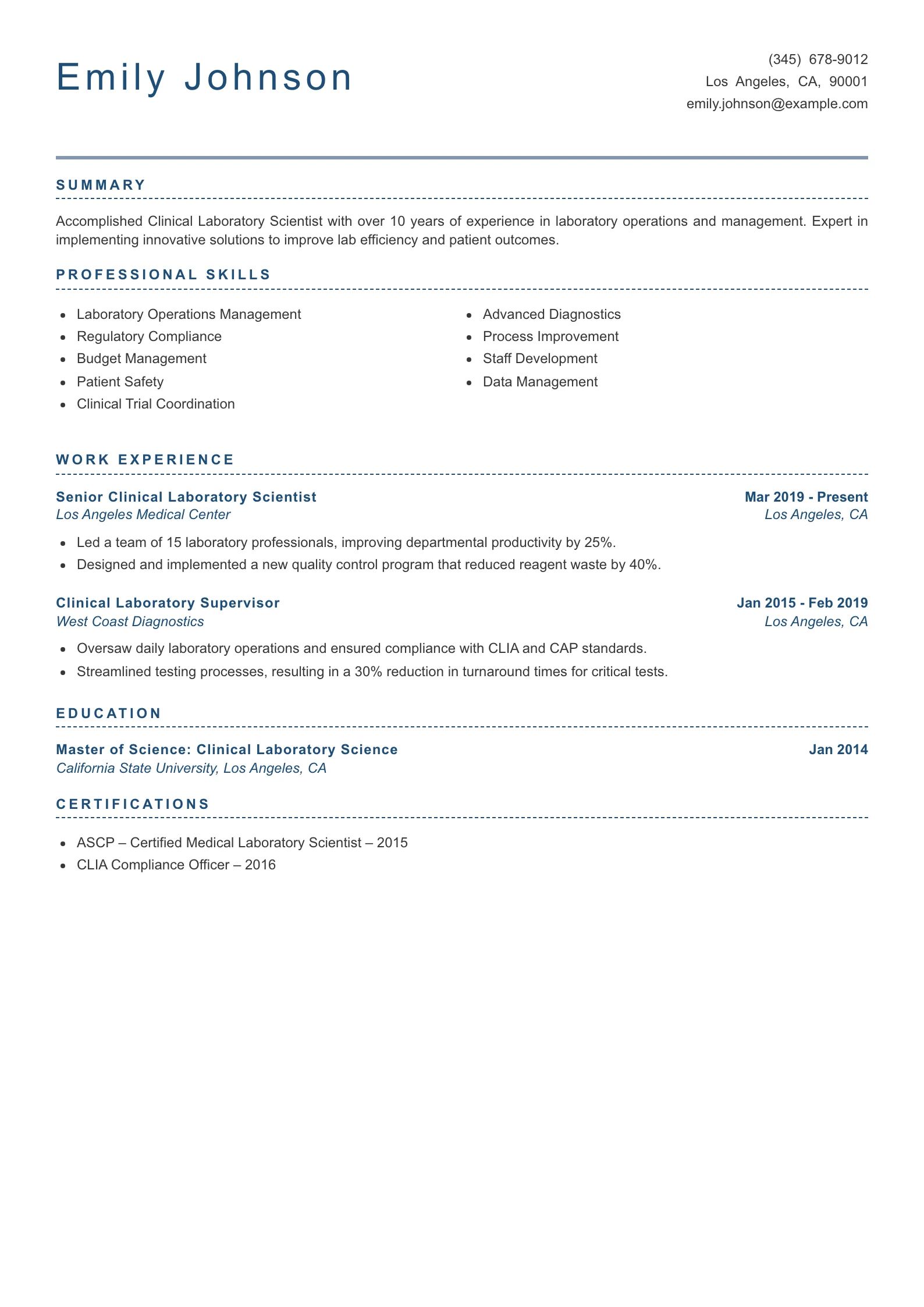
Why This Resume Works
- The summary provides a clear and concise overview of Emily’s expertise, emphasizing her extensive experience and focus on improving lab efficiency and patient outcomes, making it immediately relevant to hiring managers in the healthcare field.
- The skills section is well-aligned with her work history and demonstrates a strong match for the role, showcasing both technical and managerial abilities that are critical for a senior position in clinical laboratory management.
- Emily’s work history highlights impactful achievements, such as leading a team to improve productivity by 25% and designing a quality control program that significantly reduced waste, demonstrating her ability to drive results in a clinical setting.
- The roles listed indicate a clear progression in responsibility, supporting her fit for a senior-level position, which is confirmed by her leadership experience and successful project implementations.
- The clarity and tone of the resume are professional and focused, effectively communicating her qualifications and contributions without unnecessary jargon, making it easy for potential employers to assess her suitability.
How to Craft a Strong Clinical Laboratory Scientist Resume
Crafting an effective resume is crucial for Clinical Laboratory Scientists, as it serves as the first impression for hiring managers. A well-structured resume can showcase your technical expertise, certifications, and soft skills that meet the specific needs of a laboratory setting. This guide will help you highlight your strengths and effectively present your qualifications to attract potential employers.
1. Summary Statement
A strong summary statement is essential for clinical laboratory scientists as it encapsulates your professional identity and career aspirations. This section should provide a snapshot of your experience level, specialization, relevant soft skills, and any pertinent certifications to set the stage for the rest of your resume.
When writing your summary, aim for a confident tone that is both tailored and result-focused. Highlight your unique contributions and what makes you an asset to a potential employer.
Here’s a placeholder where you can include examples of effective summaries tailored to different experience levels:
Motivated recent clinical laboratory science graduate with hands-on experience in hematology and microbiology during internships. Adept at executing laboratory tests and maintaining quality control standards.
Mid-Level:
Detail-oriented Clinical Laboratory Scientist with over 5 years of experience in a busy hospital laboratory. Proven track record in improving testing processes and ensuring compliance with regulatory standards.
2. Skills & Qualifications
Highlighting the right skills is crucial for any Clinical Laboratory Scientist resume. Core technical skills might include proficiency in laboratory techniques, while soft skills like communication and teamwork are equally important.
To identify the skills to include, analyze job descriptions for keywords and phrases that align with your qualifications. Using an Applicant Tracking System (ATS) compatible format will enhance your visibility in the hiring process.
This section will showcase your skills effectively:
- Clinical microscopy
- Molecular diagnostics
- Quality assurance
- Laboratory information systems (LIS)
- Data analysis
- Problem-solving
- Team collaboration
- Attention to detail
Top ATS Keywords for Clinical Laboratory Scientist
3. Work History
In the work history section, focus on aspects such as patient care, metrics, and any leadership roles or specialty procedures relevant to your experience level. Use a reverse-chronological format, detailing your roles from the most recent backward, and utilize quantified bullet points to emphasize your impact.
Employers appreciate clear, concise descriptions that showcase measurable accomplishments. For example:
Clinical Laboratory Intern, General Hospital, Anytown, USA, Jan 2023 – May 2023
– Conducted routine laboratory tests under supervision
– Assisted in maintaining laboratory equipment and inventories
– Adhered to safety and quality assurance protocols
Mid-Level:
Clinical Laboratory Scientist, City Medical Center, Anytown, USA, Jun 2018 – Present
– Supervised a team of junior laboratory staff, enhancing workflow efficiency
– Developed and implemented quality control measures, resulting in a 20% reduction in test errors
– Trained new employees on laboratory protocols and safety standards
4. Education
A solid educational background is essential for Clinical Laboratory Scientists. Typically, this includes a bachelor’s degree in clinical laboratory science or a related field.
When formatting your degrees and certifications, clearly list the type of degree, school name, location, and graduation year. This structured approach makes it easy for hiring managers to assess your qualifications at a glance.
You can refer to this placeholder for specific examples:
Degree, School Name, City, State, Graduation Year
Example:
BS in Clinical Laboratory Science, University of Health Sciences, Anytown, USA, 2018
5. Additional Sections
Consider including optional sections that can further enhance your resume, such as certifications, languages spoken, and professional awards. Certifications specifically related to laboratory science, such as ASCP or AMT, should be presented clearly.
For example, you can format your certification details like this:
- ASCP Board of Certification – Clinical Laboratory Scientist – 2020
- Certified Medical Laboratory Scientist (MLS) – 2019
6. Do’s and Don’ts
To help you create a successful resume, here are some practical tips for Clinical Laboratory Scientists: – Do: Tailor your resume for ATS, show measurable impact, and use industry-specific terminology. – Don’t: Use generic statements, overlook the importance of soft skills, or overly rely on buzzwords.
By following these guidelines, you can create a standout resume that effectively communicates your qualifications and expertise in the clinical laboratory field.

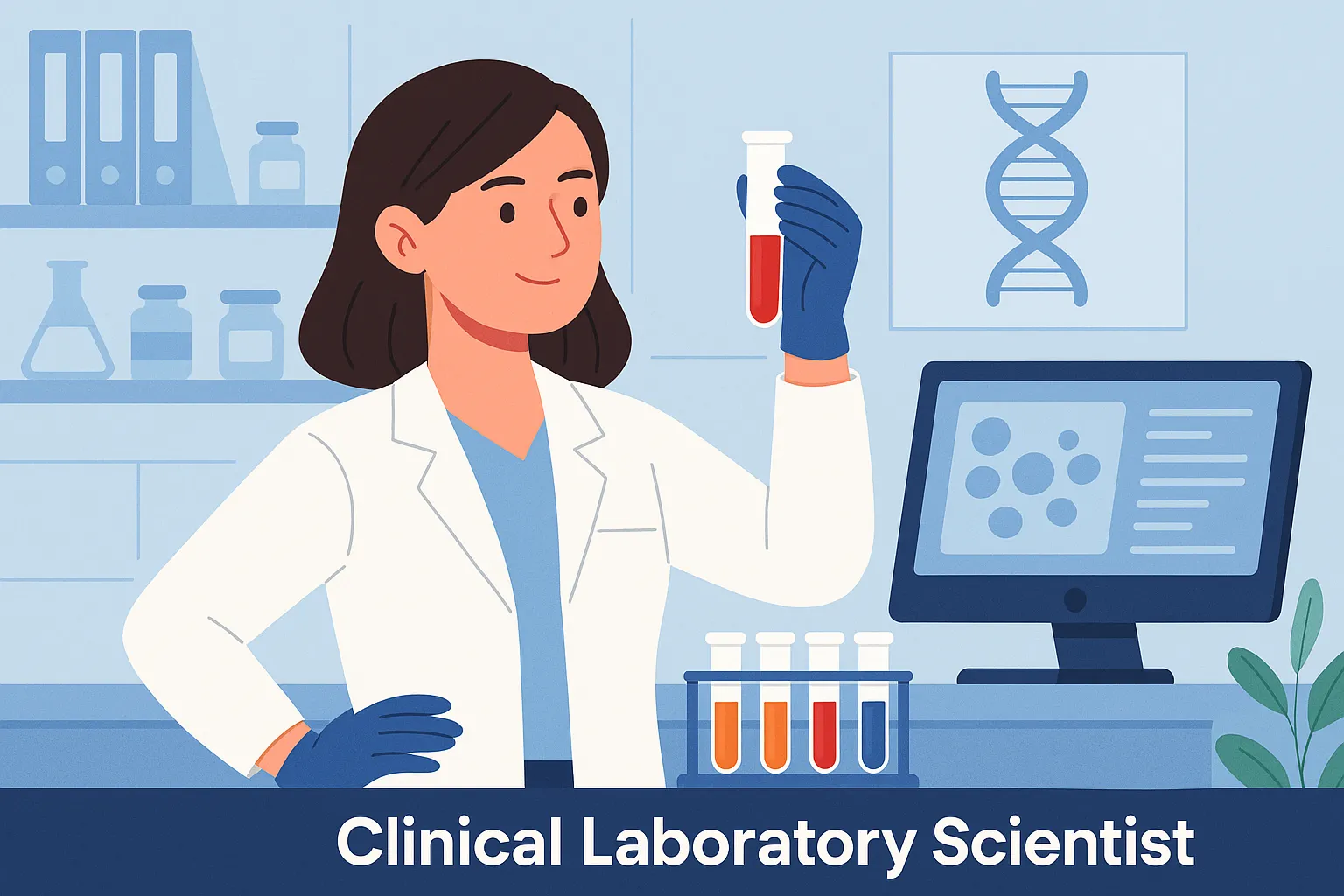




![Child Actor Resume Examples & Writing Tips [2025]](https://myresumestar.com/wp-content/uploads/2025/10/Featured-image-for-article-on-child-actor-resume.webp)

